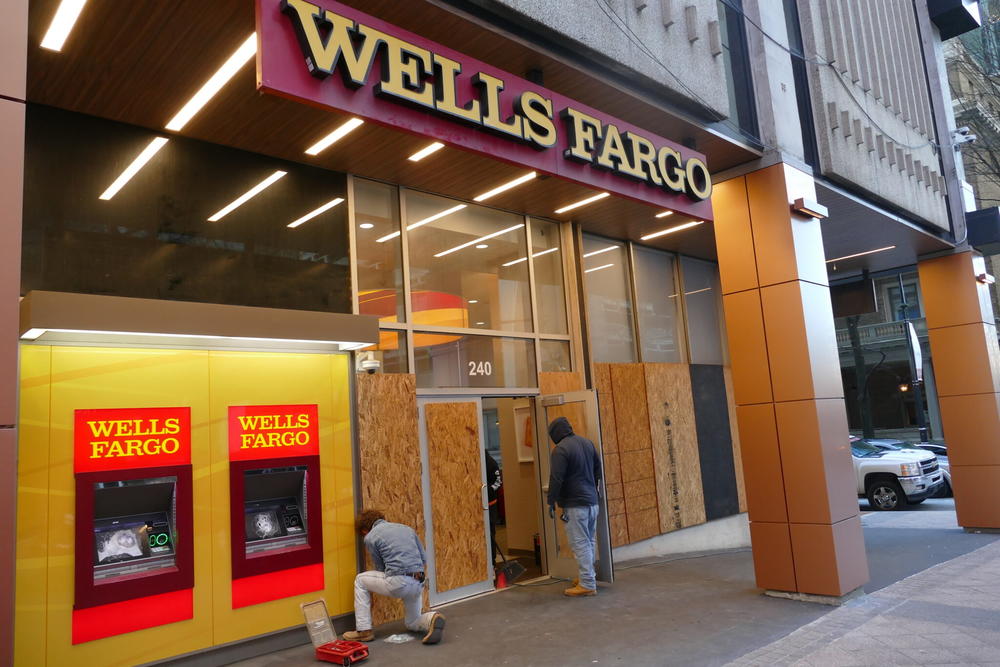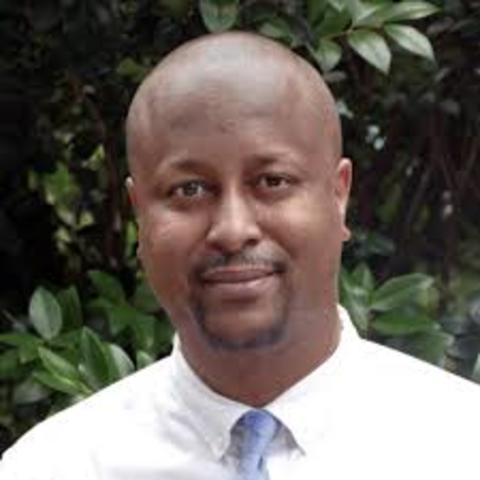
Caption
Workers boarded up shattered windows and doors at the Wells Fargo branch on Peachtree Street in downtown Atlanta Monday afternoon. The bank was apparently targeted by rioters for its support of the Atlanta Police Foundation, which backs a planned training center for law enforcement.
Credit: John McCosh / Georgia Recorder

